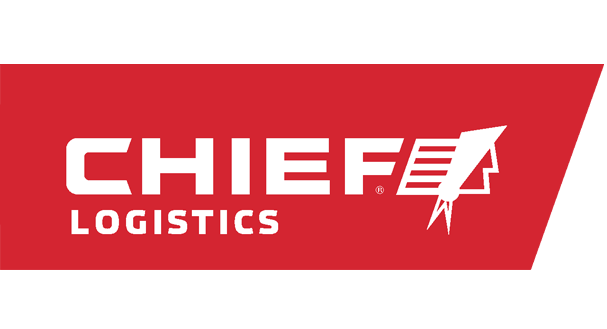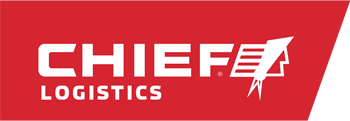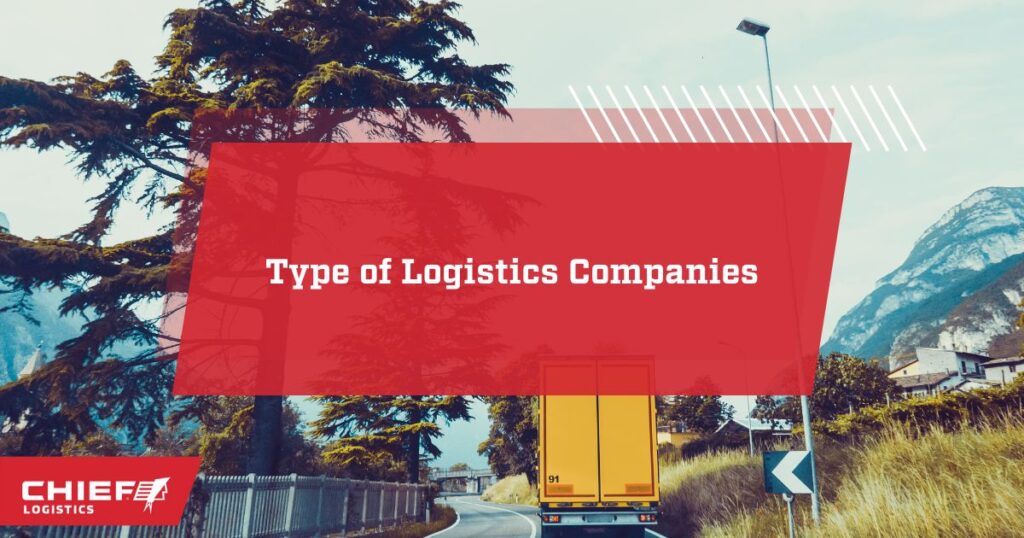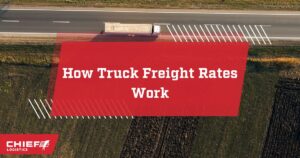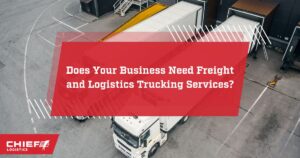Type of Logistics Companies: Your Guide to 1PL, 2PL, 3PL, and 4PL Services
Searching for a logistics company can be overwhelming, especially when you’re faced with confusing terms like 1PL, 2PL, and so on.
However, efficient logistics management is key to a successful business. It streamlines the delivery of your products to customers, cuts costs, and boosts your overall productivity. So, how can you find the right logistics partner without getting lost in the jargon?

The Essential of Logistics
Logistics companies provide their services to help your supine chain remain effective and successful. With a range of benefits to help you navigate the complexities of transportation, warehousing, and distribution.
By partnering with the right logistics provider, you can streamline your operations, reduce costs, and ultimately deliver your products to customers faster and more reliably. This translates to improved customer satisfaction, increased sales, and a stronger bottom line for your business.
What Are Third-Party Logistics Providers?
So, what type of logistics company is right for your business? The answer isn’t always straightforward. In this Chief Logistic guide, we’ll go over the different types of logistics companies – from 1PL to 4PL – so you can make an informed decision that best suits your needs.
At Chief Logistics, we’re not just a trucking logistics company; we’re your partner in navigating the logistics landscape.
Unpacking The Different Types Of Logistics Service Providers
Just like there are different types of trucks for different hauling needs, there are different types of logistics companies, each with its own strengths and specialties. Let’s break them down.

First-Party Logistics (1PL): Doing It All In-House
If you’re a 1PL company, you’re essentially your own logistics department. You own and operate all the necessary assets and resources – from warehouses and trucks to drivers and software – to handle your entire supply chain.
While this offers maximum control, it also requires significant investment in infrastructure and personnel.
Pros of 1PL
- Complete control over logistics operations
- Potential for greater customization
- Closer integration with your core business
Cons of 1PL:
- High capital investment
- Limited expertise in specialized logistics functions
- Potential for inefficiencies if not managed properly
Why 1PL Might Be More Expensive
While 1PL offers control and customization, it’s important to consider the potential drawbacks, especially regarding equipment and personnel costs:
Building and maintaining a fleet of trucks, warehouses, and other logistics infrastructure requires significant upfront capital. This can strain your finances, especially for smaller businesses or those with limited resources.
Hiring and training a skilled logistics workforce, including drivers, warehouse staff, and management personnel, can be expensive. You’ll also need to factor in salaries, benefits, and ongoing training expenses.

Why Choose 1PL?
While the idea of managing your entire supply chain in-house might seem daunting, 1PL can be a strategic advantage for certain businesses. Here’s a closer look at the types of companies that typically benefit from this model:
- Large Enterprises with High Shipping Volumes: If your business ships a large volume of goods regularly, owning your fleet and warehouse facilities can lead to significant cost savings in the long run. It eliminates the need to pay for external transportation and storage services.
- Businesses with Unique or Specialized Needs: Companies dealing with products that require specialized handling, temperature control, or have strict security protocols often prefer 1PL. Owning the entire logistics process allows for complete control and customization to meet these specific requirements.
- Vertically Integrated Companies: For businesses that control multiple stages of the production process, from manufacturing to distribution, 1PL can be a natural fit. It allows for seamless integration and optimization across the entire supply chain.
Second-Party Logistics (2PL): Your Transportation Specialists
2PL companies are the transportation experts. They own and operate their fleet of trucks or other vehicles, specializing in moving freight from point A to point B.
While they offer expertise in trucking logistics, they typically don’t handle other logistics functions like order fulfillment.
Pros of 2PL:
- Specialized transportation expertise
- Potentially lower costs for transportation services
- Established relationships with carriers
Cons of 2PL:
- Limited scope of services
- Lack of control over other aspects of the supply chain
- Potential for capacity constraints during peak seasons

Who Benefits from 2PL?
2PL providers are a great option for businesses that:
- Primarily need transportation services: If your main logistics requirement is moving goods from one place to another, and you have the capacity to manage other aspects of your supply chain internally, a 2PL provider can be a cost-effective solution.
- Have fluctuating transportation needs: 2PL providers offer flexibility to scale their services based on your demand, making them ideal for businesses with seasonal or unpredictable shipping volumes.
- Want to leverage transportation expertise: 2PL providers have in-depth knowledge of the transportation industry, including regulations, routes, and carrier selection. This can help you optimize your transportation operations and reduce costs.
Third-Party Logistics (3PL): Your Full-Service Logistics Partner
What are third-party logistics providers?” – they’re your strategic partners in managing the complexities of your supply chain.
3PL companies are the one-stop shops of the logistics world and the most popular among logistic services.
Like Chief Logistics, they offer a broad range of services, including transportation, sometimes warehousing, order fulfillment, inventory management, and more.
By outsourcing your logistics to a 3PL provider, you can streamline your operations, reduce costs, and focus on your core competencies.
Pros of 3PL:
- Wide range of services
- Scalability and flexibility to meet changing demands
- Access to expertise and technology
- Reduced overhead costs
Cons of 3PL:
- Less direct control over logistics operations
- Potential for communication challenges with external partners

Who Benefits from 3PL?
2PL providers are a great option for businesses that:
- Primarily need transportation services: If your main logistics requirement is moving goods from one place to another, and you have the capacity to manage other aspects of your supply chain internally, a 3PL provider can be a cost-effective solution.
- Have fluctuating transportation needs: 3PL providers offer flexibility to scale their services based on your demand, making them ideal for businesses with seasonal or unpredictable shipping volumes.
- Want to leverage transportation expertise: 3PL providers have in-depth knowledge of the transportation industry, including regulations, routes, and carrier selection. This can help you optimize your transportation operations and reduce costs.
- Small to medium-sized businesses with limited resources: For companies that may not have the capital to invest in their own transportation fleet or the expertise to manage complex logistics operations, 3PL can be a viable option.
- Businesses focused on core competencies: By outsourcing transportation to a 3PL provider, you can free up internal resources and focus on your core business activities, such as product development, marketing, and sales.
Fourth-Party Logistics (4PL): Your Supply Chain Orchestrator
4PL companies take logistics management to the next level. They act as strategic partners, overseeing and optimizing your entire supply chain from end to end.
Unlike 3PLs, which focus on individual logistics functions, 4PLs take a holistic approach, integrating all aspects of your supply chain and leveraging advanced technology and data analytics to drive efficiency and cost savings.
Pros of 4PL:
- A holistic approach to supply chain management
- Strategic optimization and continuous improvement
- Access to cutting-edge technology and data analytics
- Enhanced visibility and control over the entire supply chain
Cons of 4PL:
- Higher cost compared to other logistics models
- Potential for conflicts of interest if the 4PL also offers 3PL services
- Requires a high level of trust and collaboration
- Less control of your processes

Who Benefits from 4PL?
4PL providers are best suited for businesses with complex supply chains that require strategic optimization and end-to-end management. This includes:
- Large enterprises with global operations: Companies with a global footprint and multiple suppliers, manufacturers, and distributors can benefit from the expertise of a 4PL to coordinate and optimize their complex supply chain network.
- Businesses seeking to outsource their entire supply chain: If you want to focus on your core competencies and leave logistics management to the experts, a 4PL provider can take on the responsibility of designing, implementing, and managing your entire supply chain.
- Companies looking for strategic guidance and optimization: 4PLs can provide valuable insights and recommendations to improve your supply chain’s efficiency, reduce costs, and enhance customer satisfaction.
- Businesses with a focus on technology and innovation: 4PLs often leverage cutting-edge technology and data analytics to optimize supply chain operations. If you’re looking to stay ahead of the curve and embrace innovation, a 4PL partnership can be beneficial.
In the next section, we’ll guide you through choosing the right type of logistics company for your business, taking into account your specific needs and goals.
Finding Your Perfect Logistics Match: Assessing Your Needs
Now that you understand the different types of logistics companies, how do you decide which one is right for your business?
It all comes down to a careful assessment of your unique needs and goals. Here are some key questions to consider:
Asking the Right Questions
What’s Your Budget? Logistics services can vary significantly in cost depending on the level of service and complexity of your needs. Determine your budget upfront to narrow down your options.
What Services Do You Need? Are you looking for basic transportation services, or do you need a comprehensive solution that includes warehousing, order fulfillment, and inventory management? Identifying your specific needs will help you choose the right type of provider.
What Are Your Industry-Specific Requirements? Some industries, like healthcare or food and beverage, have unique regulations and compliance standards. Make sure your logistics partner has expertise in your specific sector.
What Are Your Growth Plans? Do you anticipate rapid growth in the near future? Choose a provider that can scale its services to accommodate your expanding needs.
How Much Control Do You Want? Some businesses prefer to maintain greater control over their logistics operations, while others are happy to outsource everything to a trusted partner. Consider your comfort level with delegation when choosing a logistics model.

Choosing the Right Fit
Here’s a general framework for deciding between the different types of logistics companies:
- 1PL: If you have the resources, expertise, and desire to manage your entire supply chain in-house, 1PL might be the way to go. However, this is usually only feasible for large enterprises with established logistics operations.
- 2PL: If your primary need is transportation, and you have the capacity to handle other logistics functions yourself, a 2PL provider could be a good option.
- 3PL: For businesses seeking a comprehensive logistics solution with flexibility and scalability, a 3PL provider is often the best choice. They offer a wide range of services and expertise, allowing you to focus on your core business.
- 4PL: If you have a complex supply chain and want a strategic partner to optimize your entire logistics operation, a 4PL provider might be the answer. They offer a holistic approach and can leverage advanced technology and data analytics to improve efficiency and reduce costs.
Chief Logistics: Your Partner in Freight Logistics Success
At Chief Logistics, we understand that no two businesses are alike. That’s why we offer flexible logistics solutions tailored to your specific needs and goals.
Our Range of Services
We provide a comprehensive suite of 3PL services, including trucking logistics, warehousing, order fulfillment, inventory management, and more.
Our team of experts will work closely with you to design a customized solution that meets your unique requirements.
Transportation Management: Expert Trucking Logistics
Our sister trucking logistics company: Chief Carriers, is a leader in their field, with top-of-the-line resources and technology to be the best ally for your transportation needs.
We also leverage our extensive network of carriers and advanced technology to optimize your transportation operations.
We handle everything from carrier selection and rate negotiation to shipment tracking and performance analysis.
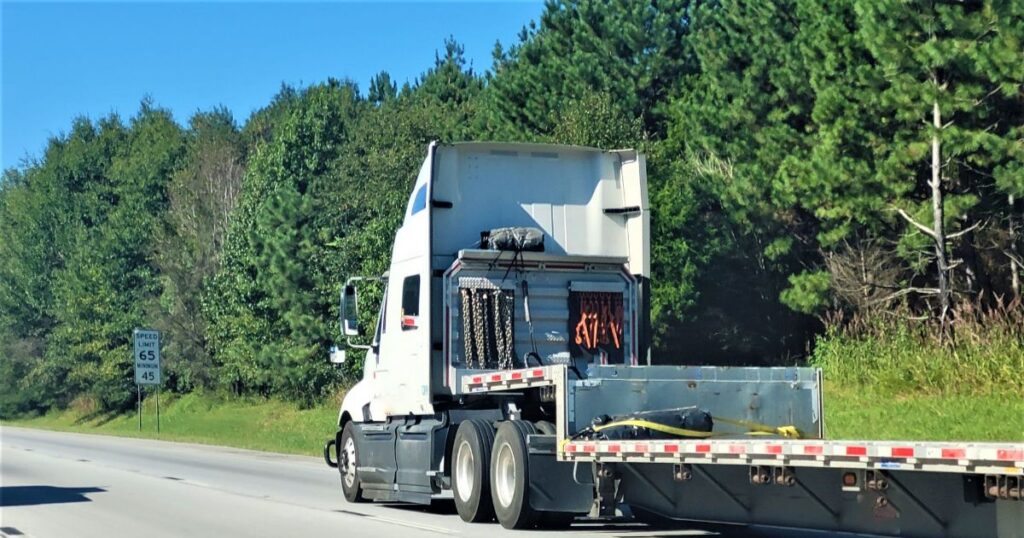
Our Commitment to Partnership
At Chief Logistics, we believe in building strong, lasting partnerships with our clients. We’re more than just a service provider; we’re your trusted advisor and collaborator.
Our commitment to transparency, communication, and continuous improvement ensures a seamless and successful partnership.
Choosing the right logistics company is a critical decision that can significantly impact your business’s success. By understanding the different types of providers and assessing your unique needs, you can make an informed choice that will streamline your supply chain, reduce costs, and enhance your competitive advantage.
Solve Your Logistic Needs Today
Ready to take your freight logistics operations to the next level? Contact Chief Logistics today for a free consultation. Our team of experts is ready to discuss your specific needs and help you find the perfect logistics solution for your business.

